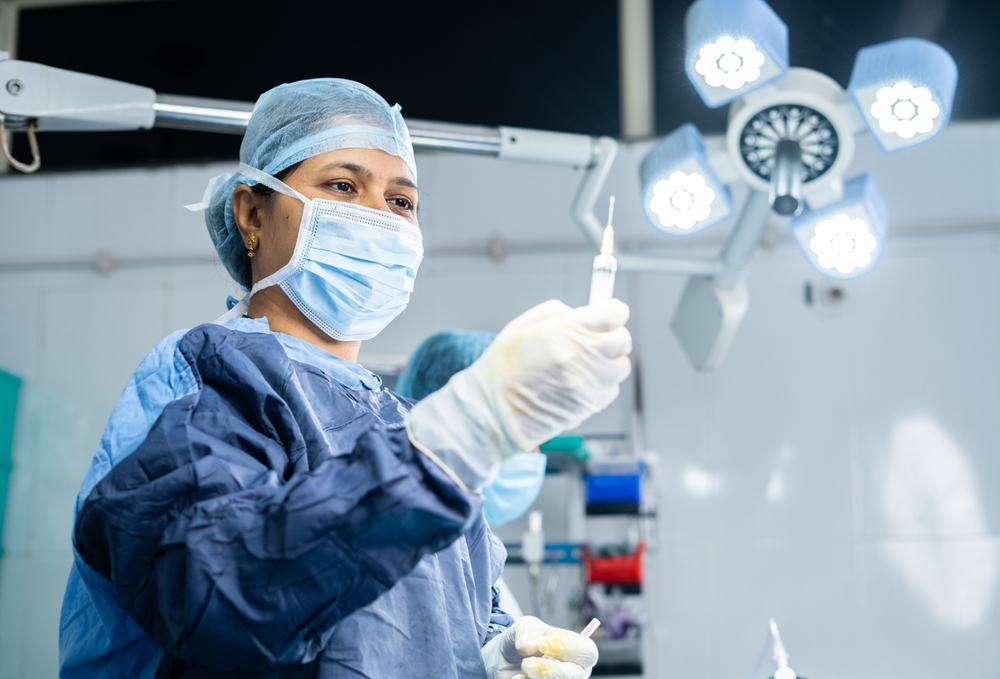Careers In Healthcare: Going Beyond MBBS
Health is what defines the future of the individual, the community, the nation, and the world. Healthcare management is becoming a much sought-after specialisation and is counted as one of the most important industries with professionals across disciplines. Healthcare has a broad range- from direct patient care to administration, marketing, management, education, and research. Healthcare jobs are projected to grow 15-20% over the next 10 years, much faster than the average for all occupations. This projected growth is mainly due to increased awareness, longer life spans, and growing demand for healthcare services.

What Does Healthcare Sector Offer
The scope of careers in healthcare is expanding and has always followed positive job growth trends. Some of the advantages of working in the healthcare industry are:-
- The industry is spread nation-wide, and ain’t limited to a few areas.
- Healthcare professions are meaningful and personally rewarding.
- Constant medical advancements bring challenges and continued learning.
- Allows entry from varying educational levels, that is, right from class 10 onwards.
- Working hours are usually flexible.
- Healthcare jobs could be in a variety of settings, e.g. hospitals, nursing homes, medical offices, pharma industries, critical care units, assisted home healthcare facilities, clinics, research, diagnostic laboratories, etc.
Non-Physician Jobs In Healthcare
Some of the highest-paid non-physician jobs in healthcare are those of:-
- Pharmacist
- Clinical Embryologist
- Respiratory Care Technologist
- Radiologic and MRI Technicians
- Dental Technician
- Physician Assistant
- Public Health Officer
Allied Health Sciences’ Programmes
The various allied Health Sciences’ programs for careers in healthcare sector are:-
Allied Health Programmes-UG
Name Of The Course | Fee Per Year | Eligibility | Duration |
BSc Medical Lab Technology |
Rs 95,950 to Rs 3,65,950 |
A minimum of 50% marks in class 12, with a subject combination of Physics, Chemistry, and Biology |
Three years + One year of internship |
BSc Medical Imaging Technology | |||
BSc Medical Renal Dialysis Technology | |||
BSc Medical Respiratory Care Technology | |||
BSc Cardiac Care Technology | |||
BSc Perfusion Technology | |||
BSc Optometry | |||
BSc Physician Assistant | |||
BSc Medical Genetics | |||
BSc Forensic Science | |||
Bachelor’s in Occupational Therapy |
(Note:- Data has been provided by JSS AHER, Mysuru)
For a career in healthcare, after completing a bachelor’s, students can pursue an MSc in specialisations such as medical Microbiology, Medical Biochemistry, Medical Physiology, Medical Anatomy, Medical Pharmacology, Clinical Psychology, Echo-Cardiography, Public Health, etc. After completing these programs, available jobs in healthcare would include those of occupational therapists, cardiac care technologists, medical imaging technologists, respiratory care technologists, optometrists, forensic scientists, medical lab technologists, etc.
 There Are Various Allied Health Sciences’ Programs For Careers In Healthcare Sector
There Are Various Allied Health Sciences’ Programs For Careers In Healthcare Sector
Pharmacy Programs
Pharmacy is one of the highest-paid jobs in healthcare industry. Different programmes available for pharmacy are:-
Pharmacy Courses After 10+2
Course Name | Fee Per Year | Eligibility | Duration |
D. Pharm | Rs. 57,550 | A minimum of 50% marks in class 12, with a subject combination of Physics, Chemistry, and Biology | 2 to 3 years |
Bachelors in Pharmacy | Rs. 200000 |
(Note:- Data has been provided by JSS AHER, Mysuru)
For careers in healthcare, after completing either of these programmes, students may choose to go in for a Master’s in Pharmacy (MPharm), Master’s in Industrial Pharmacy, Doctor of Pharmacy, etc. Healthcare job prospects after pharmacy courses would include those of hospital pharmacist, clinical pharmacist, academician, research scientist, drug regulatory officer, and the likes of these.
Life Sciences Programs
Various programs offered in Life Sciences to eventually pursue careers in healthcare are the following:-
Courses In Life Sciences- UG
Course Name | Fee Per Year | Eligibility | Duration |
Microbiology | Rs 40,000 to Rs 60,000 | A minimum of 50% marks in class 12, preferably with PCB as the subject | 3 years |
Biotechnology | |||
Environmental Science | |||
Psychology |
(Note:- Data has been provided by JSS AHER, Mysuru)
After completing their Bachelor’s in Life Sciences, students may pursue a master’s in the same field. The available jobs in healthcare after these courses include those of nanotech scientists, medical statisticians, cosmetic scientists, psychologists, dietitians, microbiologists, etc.
Health System Management Studies Programs
Students who wish to pursue a career in healthcare management may consider opting for the following courses:-
Healthcare Management Courses- UG
Course Name | Fee Per Year | Eligibility | Duration |
BBA | Rs. 72,700 | A minimum of 50% marks in class 12 | 3 years |
BBA in Hospital and Health System Management |
(Note:- Data has been provided by JSS AHER, Mysuru)
After completing a BBA, students may pursue an MBA in Healthcare Management, Hospital Administration, Pharmacy Administration, and so on.The available jobs in healthcare after these courses include healthcare finance managers, blood bank administrators, data analytics managers, product marketers, healthcare consultants, hospital administrators, etc.
